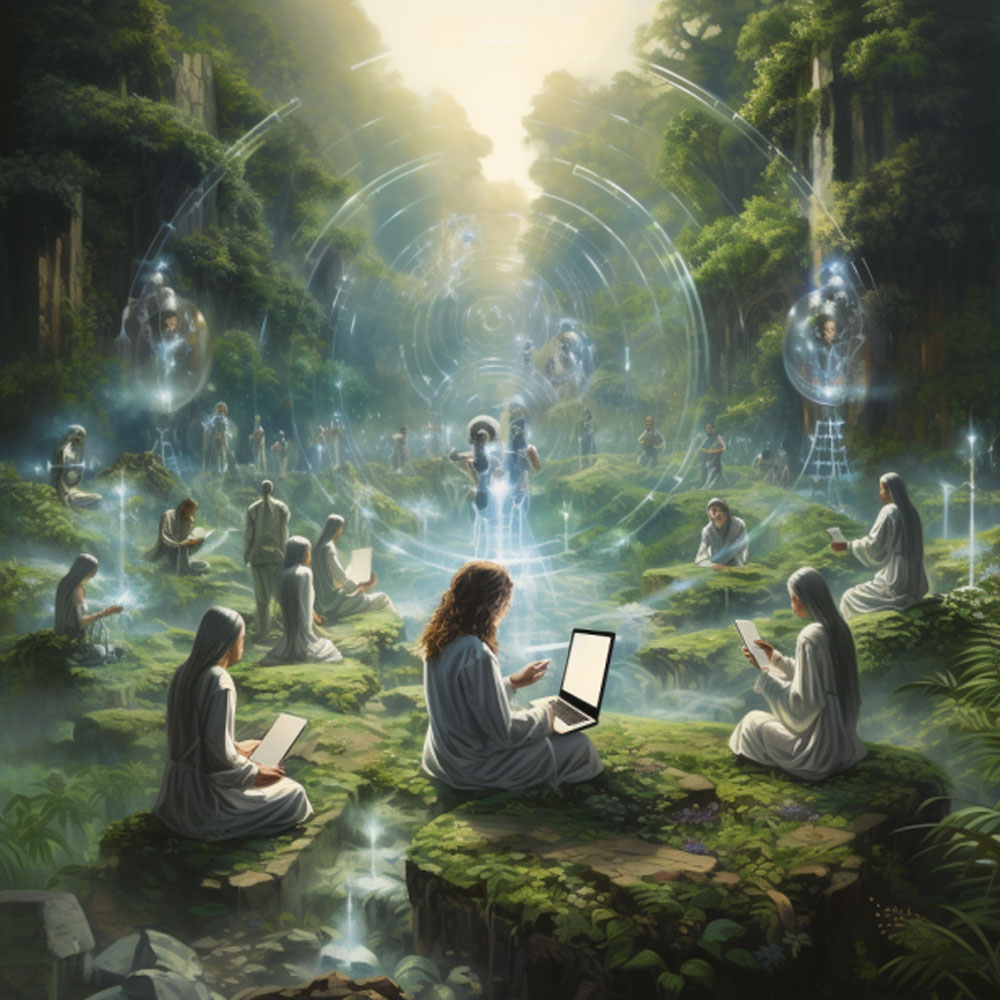Some transhumanists envision using technology to achieve digital immortality or enhance human capacities. As a Christian, I think about these aspirations in light of our hope in the resurrection. Scripture depicts a glorious future bodily state awaiting believers. How does this shape a theological perspective on AI and the future of human identity?
Continuity and Transformation
The Bible teaches the dead will rise again to renewed bodily existence. As Paul explains, “The body that is sown is perishable, it is raised imperishable; it is sown in dishonor, it is raised in glory.” (1 Corinthians 15:42-43) Jesus’ resurrection previews this, displaying both physical continuity and radical transformation. This motivates Christian interest in technologies enhancing life, while anchoring hope beyond what AI can accomplish. We await ultimate fulfillment in Christ.
Recovering a Holistic View
Transhumanists often posit a dualism between body and mind, optimizing the latter through merging with computers. But biblical anthropology maintains humans are integrated, holistic beings. Our future heavenly state involves perfection of both physical and immaterial aspects. AI may augment mental skills for now, but cannot yield the complete restoration promised in the new creation. Embodiment retains significance eternally. Christian vision includes resurrection of the body.
Caution Regarding Posthuman Visions
Some transhumanists predict a “posthuman” future where technology enables consciousness to evolve beyond current human limitations. But Christianity historically has resisted Gnostic tendencies devaluing earthly life in anticipation of escaping materiality. While we long for freedom from sin, God called His entire creation good (Genesis 1). The future fulfills rather than abandons God’s purposes for humanity and the material world. Glorification does not necessitate transcending human identity.
Stewarding Our Gifts
I believe we are called to steward abilities like creativity and intelligence with wisdom and ethics because they are gifts bearing God’s image. AI can aid this cultivation. But we should be wary of enhancements aimed at radical redefinition of human nature. Our bodies have inherent dignity; we need not race to fundamentally reengineer them. As 1 Corinthians 6:19 states, “Do you not know that your bodies are temples of the Holy Spirit?”
Living in Light of Eternity
Acknowledging the resurrection shifts our perspective on earthly life. As C.S. Lewis wrote, “If this present world were all, then fast trains and labor-saving appliances would be vastly more important than theology.” But living in light of eternity relativizes the urgency of certain tech pursuits. While AI may bring beneficial change, true hope lies not in singularity but resurrection. This frees Christians to engage AI thoughtfully, without idolizing its potential. Our fullest transformation awaits reunification with Christ.
The incarnate Son of God sanctified human existence by entering bodily life himself. As we await the redemption he promises, may we similarly honor both the blessings and limitations of our current embodiment.
